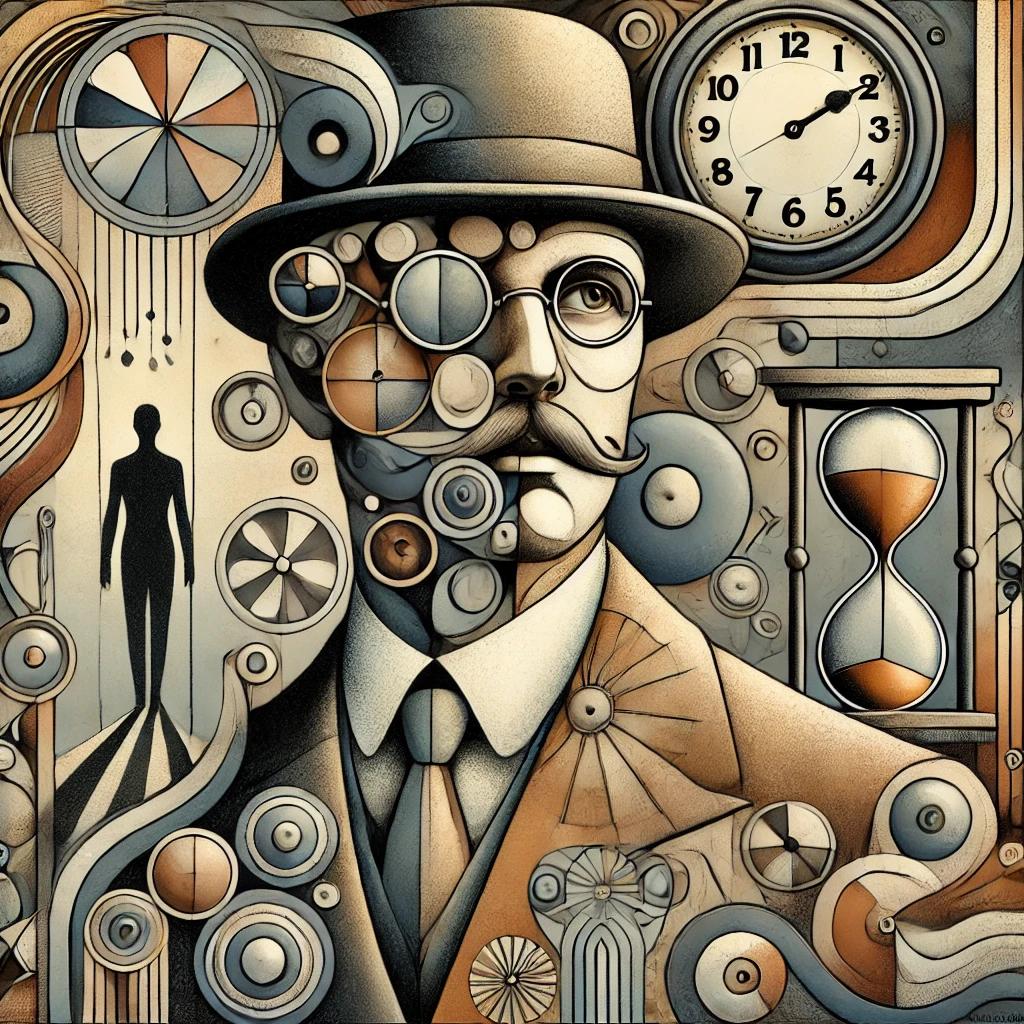James Joyce

Birth Date: 1882-02-02
Death Date: 1941-01-13
Place of Birth: Dublin, Ireland
Place of Death: Zurich, Switzerland
Century: 20th
Region: Europe
"I am tomorrow, or some future day, what I establish today. I am today what I established yesterday or some previous day."
Born in Dublin, Ireland, James Joyce was a novelist, poet, and literary critic who became a central figure in modernist literature. His works are known for their complex structure, linguistic innovation, and exploration of the inner thoughts and consciousness of his characters. 'Ulysses,' often considered his masterpiece, parallels Homer’s 'Odyssey' and takes place over the course of a single day in Dublin.
Joyce used a writing style that captures the flow of thoughts and feelings in his characters. His stories often explore who we are and how we experience the world, breaking away from traditional ways of storytelling.
Ulysses: Joyce’s modernist novel that uses stream-of-consciousness techniques to explore the inner thoughts of its characters. It’s considered one of the most important works of 20th-century literature. A Portrait of the Artist as a Young Man: A semi-autobiographical novel that traces the development of the protagonist’s artistic consciousness.
Joyce was influenced by classical literature, including the works of Homer and Dante, as well as by contemporary literary movements such as modernism and symbolism. He was also inspired by the philosophy of Friedrich Nietzsche and the psychoanalytic theories of Sigmund Freud.
Joyce’s innovative narrative techniques, particularly his use of stream of consciousness and non-linear structures, have had a profound influence on 20th-century literature. His work has inspired writers such as Samuel Beckett, William Faulkner, and Virginia Woolf, and continues to be studied for its linguistic creativity and exploration of consciousness.
Joyce’s works, especially 'Ulysses,' were considered controversial for their explicit content and experimental style. 'Ulysses' was banned in several countries, including the United States, for its portrayal of sexuality and its perceived obscenity.
Critics of Joyce often argue that his works are overly difficult and inaccessible due to their complex language and obscure references. Some have also critiqued the perceived elitism in modernist literature, including Joyce’s focus on the inner life of intellectuals and artists.
James Joyce’s contributions to modernist literature continue to be celebrated, with 'Ulysses' often regarded as one of the greatest novels of the 20th century. His influence extends beyond literature into fields such as psychology, philosophy, and literary criticism, where his explorations of consciousness and identity remain highly influential.
Joyce’s 'Ulysses' was the subject of a landmark legal case in the United States, where it was banned for obscenity until 1933, when the ban was overturned. Joyce had a complicated relationship with his native Ireland, choosing to live much of his life in self-imposed exile in continental Europe, but his works are deeply rooted in Irish culture and history.





